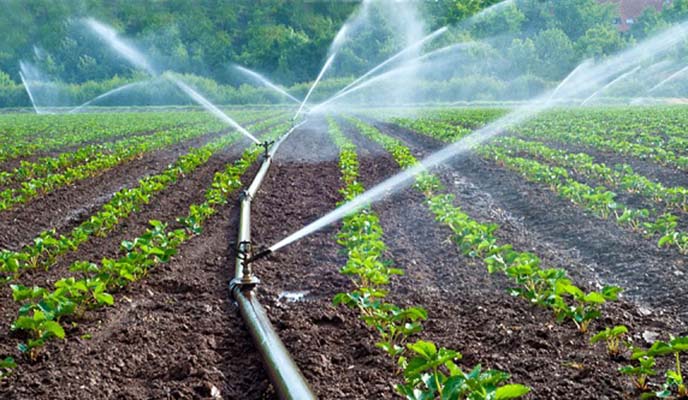Zim targets 220 000ha under irrigation
Zimbabwe has the capacity to irrigate over 220 000 hectares of crops this season, a move that will guarantee a decent harvest and enhance national strategic grain reserves in the face of El Nino.
Government is targeting 460 irrigation schemes under maize as efforts to improve agricultural production are escalated to mitigate effects of climate change.
This season, about 90 000ha of potential irrigation have been identified for maize as the Government scale up efforts to boost food production in face of El Nino season.
Speaking at an Agribusiness Forum hosted by Zimpapers last week, Permanent Secretary for Lands, Agriculture, Fisheries, Water and Rural Development Professor Obert Jiri said the country still needed to develop more irrigation around the huge water bodies that are in the country.
“This is really to mitigate and climate proof on a larger scale so irrigation development is key. The situation about climate change is unprecedented and we must develop our irrigation in order to climate proof at the larger scale. Irrigation schemes are now pivotal in the face of climate change,” he said.
“We have 460 irrigation schemes dotted around the country. We have the capacity in the country to irrigate 220 000 hectares. We still need to develop more irrigation around the huge water bodies that we have. Irrigation and harnessing water are currently key things which we must preach about.’’
The intention is to fight the effects of climate change although irrigation farming helps farmers in diversifying their farming operations thereby allowing them to grow crops all year round rather than engaging in seasonal productions.
Prof Jiri said investors should come and invest in agriculture and harnessing water which is the enabler to agricultural production.
He urged beneficiaries of Pfumvudza programme to adhere to principles of the conservation agriculture, adding that the adoption rate of Pfumvudza was not 100 percent.
Last year 5,5 million plots of Pfumvudza were established, but the actual plots needed is 9,5 million to ensure food security at household level, and provide the required surpluses for sale to give the farmers a decent income.
Zimbabwe Commercial Farmers Union (ZCFU) president Dr Shadreck Makombe said capital was critical for farmers to ensure they produce good yields.
“Lets work together as a team. Improved consultation by the Government and private sector creates a viable industry,” he said.
“Our agricultural industry is going to rise if levels are sustained and we are bound to reclaim the breadbasket status sooner than later.
“Most farmers were doing well historically. Government has also established an Agricultural bank (AFC). A lot of money has been put aside and the money is coming to revolutionise.’’
Meanwhile, agricultural expert and Agricultural Rural Development Authority board chairman, Mr Ivan Craig, said horticultural production was doing well in most areas of the country, but monitoring of the chemicals used was important.
“In Zimbabwe, we have areas where we are producing horticultural products such as Murehwa, Domboshava, Mahusekwa among others,” he said.
“As farmers we are producing vegetables.
“There is no one or Agritex extension officer on the ground who is monitoring the chemicals for pesticides which are being used in the control of pests and diseases and there is nothing which can stop a farmers using some purple labelled chemicals which might be harmful to people.
“That’s why we are finding cancer issues and to make it worse we have no control over what is being delivered to the market.”
-herald











